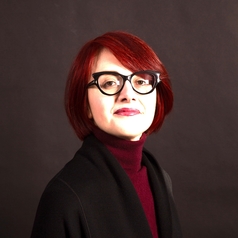
Annalisa Savaresi
Senior Lecturer, Environmental Law, University of Stirling
Annalisa is a renowned expert in climate change law and on the interplay between human rights and climate change law, with 20 years’ experience working with international and nongovernmental organizations. Before embarking on an academic career, she worked with non-governmental organisations and think-tanks, focussing on human rights based approaches to environmental protection. Since turning to academia in 2009, she has contributed to numerous law and policy reports prepared for international organisations and governments. She has given evidence to the UK, the EU and Scottish Parliaments and provided technical advice in the context of the world’s first inquiry into the human rights violations associated with the impacts of fossil fuel corporations – the so called Carbon Majors inquiry carried out by the Philippines Human Rights Commission.
Annalisa's numerous publications on international climate change law, emissions from land uses, and rights-based approaches to environmental law and policy have been widely cited and She has taught in prestigious institutions all over the world.
Annalisa is Associate Editor of the Review of European, Comparative and International Law and currently serves as Director for Europe for the Global Network on Human Rights and the Environment. She is member of the IUCN World Commission on Environmental Law and of the Women's Energy and Climate Law Network.
Less ![]()
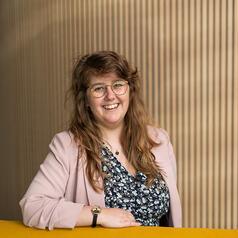
Annayah Prosser
Assistant Professor in Marketing, Business and Society, University of Bath
Annayah is a lecturer (Assistant Professor) in Marketing, Business and Society in the University of Bath's School of Management. Her primary research interest concerns how individuals and groups respond to societal crises, such as the climate and ecological emergency. She explores how our group identities can both help and hinder societal transformations, and why some groups act in more prosocial and proenvironmental ways than others. She also explores how events such as festivals and mass-gatherings can impact our personal and social identities.
She is also interested in how organisations, policy makers and activists can help to promote societal change towards more sustainable futures. She has worked with a number of governmental and non-governmental organisations, including: the Scottish Government, Northern Ireland Government, the British Standards Institution, Nottingham City Council and BaNES Council. She is always looking for new opportunities to collaborate and bridge the gap between academia, organisations and the public.
Less ![]()

Anne Aly
Professor Anne Aly is the author of over 50 journal articles and book chapters on areas including terrorism, Muslim identity, social media and terrorism, radicalisation and extremism. She currently leads several projects on extremism and social media including the role of formers and victims in counter campaigns.
Professor Aly is the Founding Chair of People against Violent Extremism, an NGO dedicated to addressing violent extremism through interventions.
She has authored five books including Terrrorism and Global Security: historical and contemporary perspectives published by Palgrave Macmillan. She was inducted into the Western Australian Women's Hall of Fame in 2011 and in 2013 was named one of Australia's most influential women by the Financial Review/ Westpac 100 Women of Influence awards. In 2016 she was nominated for Australian of the Year Awards. Anne is the editor of the forthcoming Violent Extremism and the Internet published by Routledge.
Less ![]()

Anne Bailey
Associate Member of the History Faculty, University of Oxford, University of Oxford
Anne E Bailey is an associate member of the History Faculty at Oxford University, and teaches courses on medieval and modern pilgrimage at the University’s Department for Continuing Education.
She has published widely on a range of pilgrimage topics including medieval saints’ cults and relics, medieval hagiography, female pilgrimage and contemporary pilgrimage phenomena.
Recent publications include a paper on micro pilgrimages as a new post-secular trend and another on how the pandemic has impacted pilgrimages.
Less ![]()
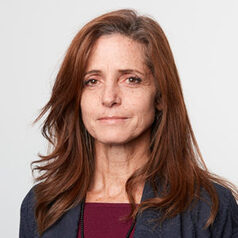
Anne Bardsley
Deputy Director - Koi Tū: The Centre for Informed Futures, University of Auckland
Less ![]()
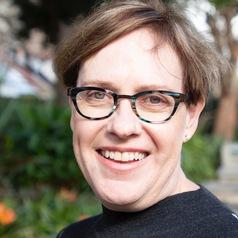
Anne Castles
ARC Laureate Professor at the Australian Centre for the Advancement of Literacy, Australian Catholic University
Anne Castles is an ARC Australian Laureate Fellow based at the Australian Centre for the Advancement of Literacy at the Australian Catholic University. Her research focuses on learning to read and dyslexia. She has a particular interest in variability within the reading-impaired population, and in the causes of different types of dyslexia, including genetic, cognitive, and language factors. She is a Fellow of the Academy of Social Sciences in Australia and the Royal Society of NSW. She served as President of Learning Difficulties Australia from 2017-18.
Less ![]()
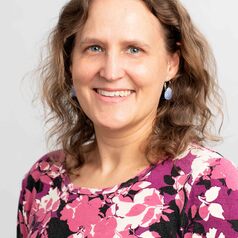
Anne Cust
Professor of Cancer Epidemiology, University of Sydney
Professor Anne Cust is a cancer epidemiologist and researcher (NHMRC Investigator Fellow) focused on the prevention and early detection of melanoma and other skin cancers. She is Deputy Director of the Daffodil Centre - a joint venture between the University of Sydney and Cancer Council NSW, and is also a Faculty member of the Melanoma Institute Australia.
Less ![]()
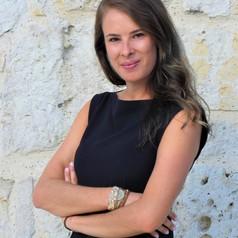
Anne de Bortoli
Chercheuse en carboneutralité et durabilité des transports et infrastructures au CIRAIG (Polytechnique Montréal), chercheuse associée au laboratoire Ville Mobilité Transport (ENPC), École des Ponts ParisTech (ENPC)
Anne de Bortoli est ingénieure en génie urbain et docteur en transport. Ses travaux de recherche portent sur la carboneutralité, l'évaluation environnementale et durable des systèmes (ACV, EEIO), avec une spécialité "transport et infrastructure".
Less ![]()
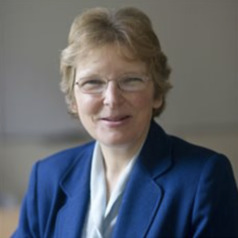
Anne Green
Professor of Regional Economic Development, University of Birmingham
After completing an undergraduate degree in geography, Anne has spent nearly all of her career conducting applied research of relevance to academia and policy in research centres/ institutes in the higher education sector.
She started her career at the Centre for Urban and Regional Development Studies (CURDS) in Newcastle. Apart from a short stint at the Department for City and Regional Planning in Cardiff she has spent most of her time at the Institute for Employment Research (IER), University of Warwick. She joined the University of Birmingham as Professor of Regional Economic Development in June 2017 in City-REDI (Regional Economic Development Institute).
Her research interests span employment, non-employment, regional and local labour market issues, skills strategies, urban and rural development, migration and commuting, associated policy issues and evaluation.
She has published in high profile journals and has written numerous reports for UK Government Departments and agencies. Anne is experienced in disseminating the results of her research to academic, policy and practitioner audiences.
Less ![]()
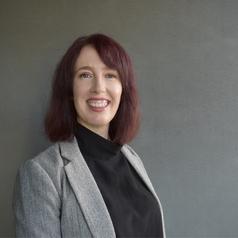
Anne Hellwig
Adjunct lecturer, Literacy, Linguistics and Semiotics, University of Wollongong
Dr Anne Hellwig is a researcher and lecturer in literacy, linguistics and semiotics. Her research interests include multimodality, educational semiotics and systemic functional linguistics. She has worked in literacy education, digital media and visual communication in Australia and in English language education in Germany, with a focus on English for Academic Purposes and English of Architects and Civil Engineers. She is interested in contemporary discourse practices, especially as they relate to education and positive social change.
Less ![]()
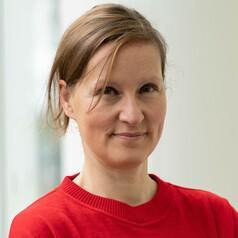
Anne Jenichen
Senior Lecturer in Politics and International Relations, Aston University
My research focuses on women's rights, the rights of religious minorities, and LGBTI rights, from an intersectional perspective. I am particularly interested in the areas of political representation and gender-based violence.
Less ![]()
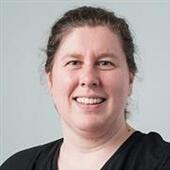
Anne Macaskill
Senior Lecturer in Experimental Psychology, Te Herenga Waka — Victoria University of Wellington
Less ![]()
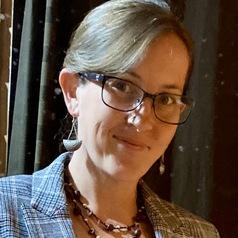
Anne Mocko
Associate Professor of Asian Religions, Concordia College
I am a scholar of South Asian religions, with particular focus Hinduism and Jainism. I study ritual and embodied practice.
I am the author of Demoting Vishnu: Ritual, Politics, and the Unraveling of Nepal's Hindu Monarchy (OUP 2016), and I have a popular-audience manuscript in progress entitled EcoKarma: Environmentalist Lessons from India's Jains.
Less ![]()
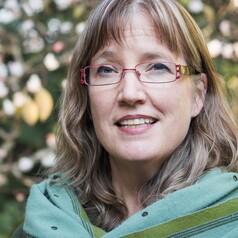
Anne Murphy
Associate Professor, Department of History, University of British Columbia
Anne Murphy (Ph.D. Columbia) is Associate Professor in the Department of History at the University of British Columbia. Her research focuses on the Punjab region of India and Pakistan, with interests in language and literary cultures, the history of the Punjabi language in South Asia and beyond, religious community formations in the early modern and modern periods, oral history, commemoration, historiography, and material culture studies. Current research concerns modern Punjabi cultural production in the Indian and Pakistani Punjabs and in the Diaspora, and the early modern history of Punjabi's emergence as a literary language. She has published one monograph, edited or co-edited three volumes and three special journal issues, one book-length translation, and articles in the Journal of Commonwealth Literature, History and Theory, Studies in Canadian Literature, South Asian History and Culture, the Journal of the American Academy of Religion, the Journal of the Royal Asiatic Society, and other journals.
Less ![]()

Anne Nugent
Reader, Nutrition, School of Biological Sciences, Queen's University Belfast
Anne Nugent is a Reader in Nutrition and Registered Public Health Nutritionist. She has carried out research into population dietary intakes of nutrients, foods, food ingredients and food chemicals. A keen advocate of a food systems approach, Anne is experienced in examining the impact on population dietary intakes from changes in our food supply from a farm level right up to fortifying foods with vitamins and/or minerals. She has also conducted feeding studies to examine how changes in our food supply can influence circulating markers of health in our blood.
Anne is currently the Queen's University Belfast PI of the Protein-I project, an island of Ireland project, which aims to maximise sustainable plant protein production in a traceable and transparent fashion, with a focus on grains and legumes. The project is funded by The Department of Agriculture, Environment and Rural Affairs (DAERA, NI) and Department of Agriculture, Food and the Marine (DAFM, ROI).
Less ![]()
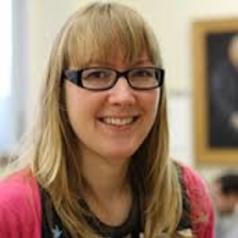
Anne Owen
Research project:
The suitability of global trade models for climate change mitigation strategy
2015 PhD in Environmental Science
2003 MSc in Geographical Information Science
2000 BSc in Geography and Mathematics
Less ![]()

Anne Power
Professor of Social Policy, London School of Economics and Political Science
Anne Power is a graduate in Modern Languages from the University of Manchester. She obtained the graduate Diploma in Social Administration at the London School of Economics in 1964 and an MA in Sociology from the University of Wisconsin in 1966. She taught in Tanzania, then worked with Martin Luther King’s ‘End Slums’ campaign in Chicago in 1966. On her return to Britain she was Warden at the Africa Centre in London from 1966-67 and then Friend’s Neighborhood House in Islington between 1967 and 1972 where she organized community based projects.
From 1972 to 1979 she was Coordinator of the North Islington Housing Rights Project reversing slum clearance in favor of regeneration, securing rehousing rights for ethnic minority and furnished tenants, developing estate based management and organizing tenant management co-operatives.
She was appointed national consultant to the Department for the Environment’s Priority Estates Project between 1979 and 1989 and helped local authorities in England and Wales to rescue run down estates. She also acted as advisor to the Welsh Office. In 1985 London University awarded her a PhD on the history of council housing and the emergence of unpopular estates.
In 1991, Anne Power became founding Director of the National Tenants Resource Centre, which opened in 1995 at Trafford Hall, Chester and provides residential training for people living and working in low-income communities.
Anne Power is Professor of Social Policy and Director of the post-graduate MSc/Diploma in Housing at the London School of Economics. Since 1987 she has been involved in European, American and international housing and urban problems and as a result has developed a new housing MSc/Diploma in international housing and social change.
In 1997, Anne Power became Deputy Director of the ESRC funded research Centre for the Analysis of Social Exclusion (CASE). She is responsible for research into change in poor neighborhoods, the impact of poor neighborhood conditions on families; a study of area abandonment; and evaluation of community self-help linked to training. Other research interests include European, American and international urban problems; crime; social exclusion; role of residents; design in relation to social organization; social and management problems; central / local government relations; community involvement; sustainable development.
Anne Power is a member of the government’s Housing and Urban Sounding Boards, advising Ministers on housing policy and urban matters. She is also a member of the Sustainable Development Commission, chaired by Jonathon Porritt, set up to suggest ways to reconcile the needs of the environment, the economy and society. In May 2002 she was appointed Chair of the Independent Commission of Inquiry into the Future of Council Housing in Birmingham, and produced a report, ‘One size doesn’t fit all’. She was awarded a CBE in June 2000 for services to regeneration and promotion of resident participation.
Less ![]()

Anne Rohde
Lecturer, Indigenous Education, Swinburne University of Technology
Anne Rohde is an educator with 15 years professional experience working across early childhood, primary, secondary and tertiary settings.
She is currently working as a Lecturer in Indigenous Education and Professional Experience at Swinburne University of Technology and undertaking a PhD.
Anne's PhD is exploring pre-service teacher knowledge in the area of Indigenous education and how this may impact upon teaching and learning.
Less ![]()
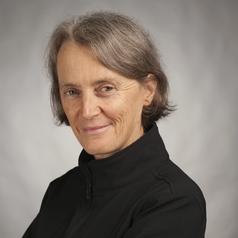
Anne Rutherford
Adjunct Associate Professor, Cinema Studies, Western Sydney University
My research explores how the cultural, social and ideological dimensions of a film are inextricably intertwined with the aesthetic strategies of the film. I argue that, if we want to understand how cinema takes up cultural or thematic issues, we must consider how film produces sensory-affective experience for the spectator. My writing on film attempts to draw the reader into both an understanding of these dynamics and an experience of them, through the writing.
I have written extensively on the centrality of affect and embodiment in cinema spectatorship. I have published a book and numerous journal articles on the role of affect and the senses in narrative, mise-en-scene, genre and film sound, through case studies of Korean detective film, classical Japanese cinema, modern Greek cinema, independent American cinema, and animation.
More recently my work has considered how spectatorship is transforming, as the moving image is increasingly exhibited in the gallery space and integrated into hybrid multimedia installations. I have published my research on the hybrid moving image work of artist William Kentridge and the multimedia documentary installations of Indian artist Amar Kanwar.
As an interdisciplinary scholar, I have a particular interest in the strategies for scriptwriting and directing that enable a filmmaker to cross cultural barriers. In recent years, I have conducted studies of ‘animate thought’ in ethnographic film and photography, and the dynamics of intercultural collaboration, focusing on the film, Ten Canoes. I have an ongoing research project and have published on the film work of acclaimed Australian Indigenous director, Ivan Sen, exploring how his approach to cinema enables him to draw audiences into a close engagement with Indigenous experience. I have also published on the film work of Indigenous directors, Tracy Moffatt and Darlene Johnson.
My research into documentary cinema has focused on exploring the imbrication of the cultural and affective-aesthetic dimensions of documentary film, through published studies of avant-garde French documentary, Indonesian political docudrama and Indian documentary, and postcolonial historiography in Australian television documentary.
http://uws.academia.edu/AnneRutherford
Less ![]()

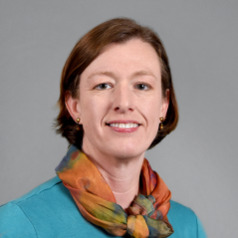
Anne Stone
Professor of Human Evolution and Social Change, Arizona State University
Anne Stone is a Regents Professor in the School of Human Evolution and Social Change at the Arizona State University. Her specialization and main area of interest is anthropological genetics. Currently, her research focuses on population history and understanding how humans and the great apes have adapted to their environments, including their disease and dietary environments. This has three main strands: (a) population history, particularly in the Americas (b) the evolutionary history of the Great Apes, and (c) understanding the co-evolutionary history of mycobacteria (specifically Mycobacterium tuberculosis and M. leprae, the causative agents of tuberculosis and leprosy, respectively) with human and non-human primates. She has been a Fulbright Fellow (1992-93) and a Kavli Scholar (2007), and, in 2011, she was elected a fellow of the American Association for the Advancement of Science. In 2016, she was elected as a member of the Naitonal Academy of Sciences. She has served on the editorial boards of the American Journal of Physical Anthropology, the Journal of Human Evolution, Evolution, Medicine, & Public Health, and Molecular Biology and Evolution. She is currently a member of the editorial board of the Philosophical Transactions of the Royal Society, series B.
Less ![]()
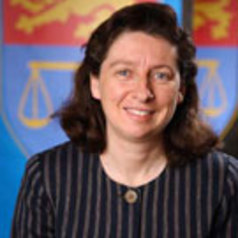
Anne Twomey
Anne Twomey has practised as a solicitor and is admitted to practice in New South Wales, Victoria, the ACT, and the High Court. She has worked for the High Court of Australia as a Senior Research Officer, the Commonwealth Parliamentary Research Service as a researcher in the Law and Government Group, the Commonwealth Senate as Secretary to the Senate Legal and Constitutional Committee, and The Cabinet Office of NSW as Policy Manager of the Legal Branch. She has acted as a consultant to various government bodies.
Less ![]()

Anne Whitehead
Professor of Modern & Contemporary Literature, Newcastle University
Anne has worked at Newcastle University since she was appointed as a lecturer in 1999. Anne has research and teaching interests in contemporary fiction and poetry, the intersections between creative and critical writing, medical humanities, memory studies, and the literary representation of grief and mourning.
Anne's monograph, Relating Suicide, has been published with Bloomsbury Press (Academic), as one of the first publications in the Critical Interventions in the Medical and Health Humanities series.
With the support of the Catherine Cookson Foundation, Anne will work with David de la Haye in 2023-24 to create a sound work that focuses on the grassroots memorial site in a copse of trees near the Angel of the North.
Anne has written the monograph Medicine and Empathy in Contemporary British Fiction: An Intervention in Medical Humanities (Edinburgh University Press, 2017). Anne co-edited with Angela Woods, Sarah Atkinson, Jane Macnaughton and Jennifer Richards The Edinburgh Companion to the Critical Medical Humanities (Edinburgh University Press, 2016).
Anne's other books include Memory: New Critical Idiom (Routledge, 2008) and Theories of Memory: A Reader, co-edited with Michael Rossington (Edinburgh University Press, 2007). Anne is also the author of Trauma Fiction (Edinburgh University Press, 2004), and she co-edited with J. J. Long the first collection of essays on W. G. Sebald to be published in English. Anne has published articles in Modern Fiction Studies, Contemporary Literature and Textual Practice and she co-edited a special issue of Feminist Theory on feminism and affect with Carolyn Pedwell (2012). Anne has held research grants from the AHRC to support her work on trauma and on memory.
Less ![]()
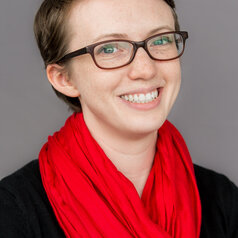
Anne Whitesell
Assistant Professor, Political Science, Miami University
Anne Whitesell is an Assistant Professor of Political Science at Miami University. Her research focuses on the intersection of representation and public policy, with a particular emphasis on how marginalized populations are represented in the American political system. Her work has been published in journals such as Political Research Quarterly, Politics & Gender, Interest Groups & Advocacy, Policy Studies Journal, and Politics, Groups, & Identities.
Less ![]()
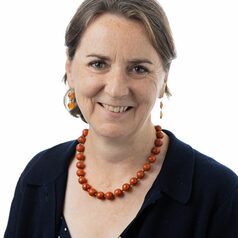
Anne Willis
Professor of Toxicology Department of Pharmacology, University of Cambridge
Anne obtained a PhD in Biochemistry from the University of London while working in the Imperial Cancer Research Fund laboratories (now CRUK) on DNA repair with Dr Tomas Lindahl. She then moved to Cambridge to work with Professor Richard Perham in the Department of Biochemistry, where she also held a Junior Research Fellowship and then a College Lectureship at Churchill College Cambridge. Anne was appointed to her first independent position as a Lecturer in the Biochemistry Department at the University of Leicester, progressing to Reader in 2002 and Professor in 2004, from 2000-2005 she held a BBSRC Advanced Fellowship. In 2004, she was appointed Director of Cancer Research Nottingham and Chair of Cancer Cell Biology, where she was based in the School of Pharmacy. From 2009-2013 Anne held a BBSRC Professorial Fellowship. In 2010 Anne became Director of the MRC Toxicology Unit. Anne was appointed as a member of the European Molecular Biology Organisation in 2015, and in 2017 awarded an OBE for services to biomedical sciences and supporting the careers of women scientists.
Less ![]()
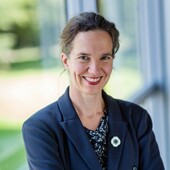

Anne M. Cronin
Professor of Cultural Sociology, Lancaster University
Anne Cronin is a Professor of Cultural Sociology at Lancaster University who works on social and cultural analysis of public relations, advertising and marketing.
Less ![]()
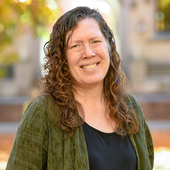
Anne M. Nurse
Professor and Department Chair of Sociology and Anthropology, The College of Wooster
Less ![]()

Anne Richardson Oakes
Associate Professor and Director: Centre for American Legal Studies, Birmingham City University
Less ![]()
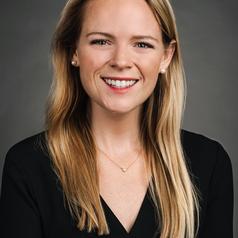
Anne Spencer Jamison
Assistant Professor of International Economics, Government, and Business, Copenhagen Business School
Less ![]()

Anne Uruegi Agi
Law lecturer , University of Calabar
Anne Agi is a lawyer of 17 years post-call and a law lecturer at the University of Calabar. She has authored a series of literature and engineered several projects on Space Law and Policy. In 2018, she led her Faculty/University team to win the African Regional Rounds of the Manfred Lachs Space Law Competition and to represent her continent at the World Finals in Washington D. C., USA where her team emerged as Best Oralists of the Competition and were 1st Runners Up.
Less ![]()
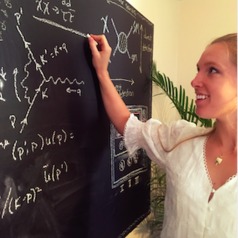
Anne-Katherine Burns
Ph.D. Candidate in Theoretical Particle Physics, University of California, Irvine
As a PhD student in theoretical particle physics, I am passionate about making the really interesting parts of physics more accessible to non-physicists through teaching and science communication. In addition to my research and work in science communication, I am actively working to further diversity, equity, and inclusion in the scientific community. I feel especially called to help get minoritized groups involved in STEM.
I believe that anyone is capable of understanding difficult concepts in science. My goal in all of my teaching and writing it is to spark in other people the wonder that I feel when I contemplate the universe's greatest mysteries.
Less ![]()

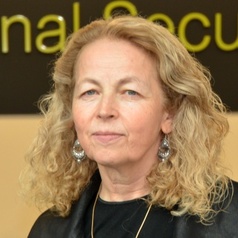
Anne-Marie Grisogono
Adjunct professor, Flinders University
Professor Anne-Marie Grisogono is a complex systems scientist and Adjunct Professor in the College of Science and Engineering at Flinders University. She holds a PhD in Mathematical Physics, and has worked in experimental and theoretical atomic and molecular physics, and lasers and nonlinear optics in various universities, followed by 20 years of applied R&D in the Defence Science and Technology Organisation (now DST Group), working on systems design, modelling and simulation, and future concept development and experimentation.
Professor Grisogono led the development of DSTO’s Synthetic Environment Research Facility. Subsequently appointed Research Leader, she raised an enabling research program into complex systems science for defence, winning a prestigious DSTO Long Range Research Fellowship for 3 years. She worked closely with Army leaders to incorporate research results into their doctrine, operations, organisational design and reframing of their approach to strategic research and development planning.
Professor Grisogono has held several national and international leadership roles within DSTO, in NATO and in The Technical Cooperation Program, in the fields of simulation, systems engineering and systems science, human sciences and complexity science. Professor Grisogono has delivered many keynotes, conducted workshops for the US Office of the Secretary of Defense (Personnel and Readiness), lectured at the US Army’s School of Advanced Military Studies, the Institute of Defense, the US Marine Corps Training and Education Command and the Potomac Institute. She was invited join the US Strategic Multilayer Assessment program, which supports the development of the US strategy in Afghanistan. Professor Grisogono has regularly taught at the Australian Defence College’s Command & Staff College, and the Centre for Defence and Strategic Studies, as well as many Army units.
Professor Grisogono was appointed to the Australian Research Council’s College of Experts in 2013. In 2015 she joined the faculty of SigmaCamp, a unique US maths and science summer camp for gifted students, organised by researchers from SUNY (Stony Brook), Brookhaven National Laboratory and Harvard Medical School, teaching a course on wicked problems. Her current research interests include fundamental questions of complexity science and improving the methodologies and tools that can be applied to dealing with complex problems. She holds a Bachelor of Science (Hons) and a PhD from the University of Adelaide.
Less ![]()
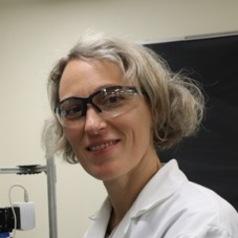
Anne-Marie Kietzig
Associate Professor, Department of Chemical Engineering, McGill University
I am an Associate Professor, who is teaching and carrying out research at the Department of Chemical Engineering at McGill University, Canada. I head a research program in Biomimetic Surface Engineering, which is built on two fundamental pillars: one being laser-material-interactions and the other being surface wetting. The fields of application are manifold and target tailoring optical properties, adhesion, drag, and friction on metals and dielectrics.
Less ![]()
- Market Data























